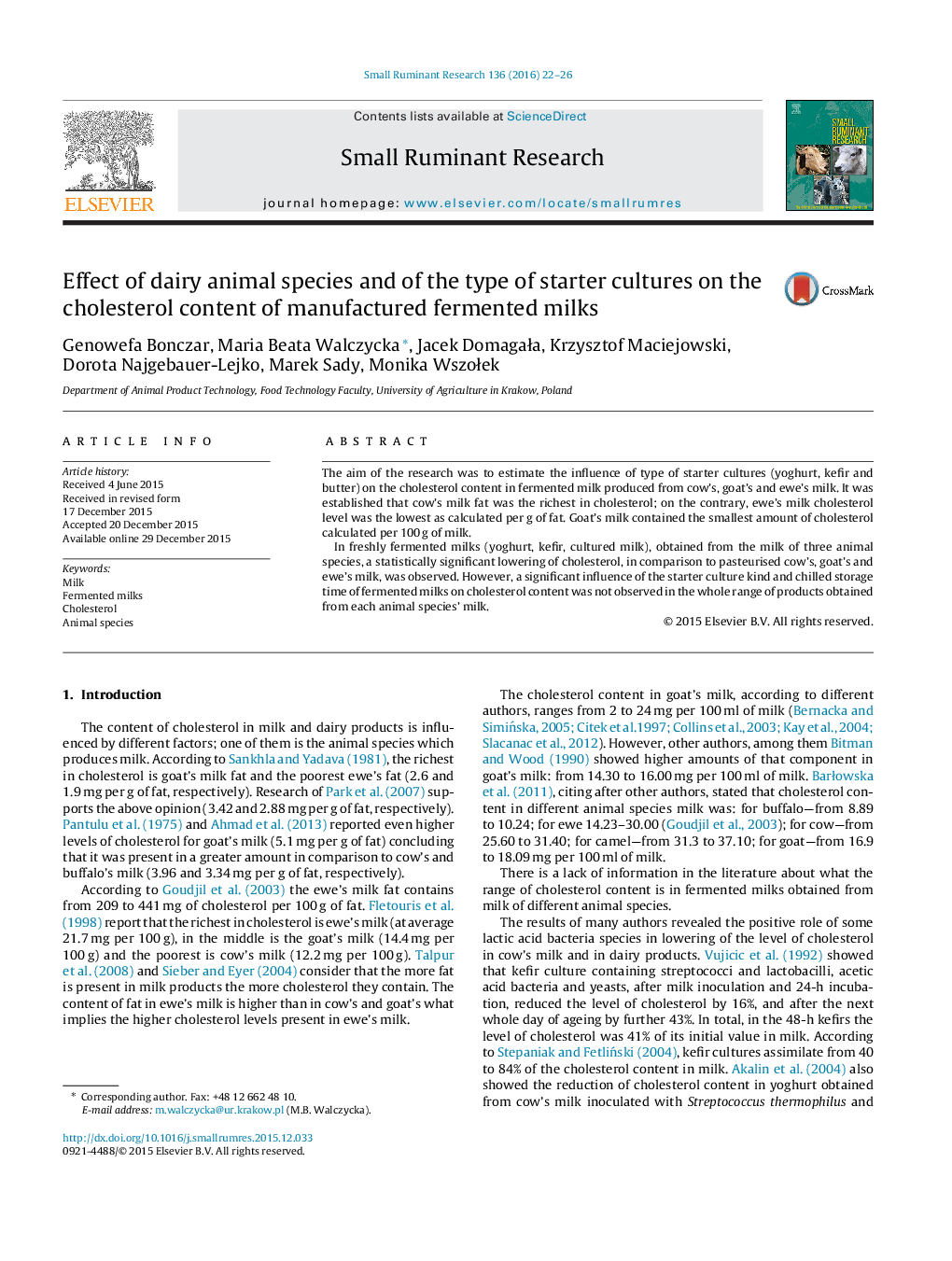| Article ID | Journal | Published Year | Pages | File Type |
|---|---|---|---|---|
| 2456701 | Small Ruminant Research | 2016 | 5 Pages |
•A comparison of the cholesterol content in cow’s, goat’s and ewe’s milk before and after fermentation with different starter cultures (yoghurt, kefir, butter milk) was performed.•Ewe’s milk was characterized by the highest cholesterol content in 100 g of product, whereas cow’s milk fat was the richest in that component.•Fermentation lowered the level of cholesterol in all fermented milks made from cow’s and goat’s milk as well as in cultured milk made from ewe’s milk.•Type of starter culture and storage time of fermented milks had no significant impact on the cholesterol content.
The aim of the research was to estimate the influence of type of starter cultures (yoghurt, kefir and butter) on the cholesterol content in fermented milk produced from cow’s, goat’s and ewe’s milk. It was established that cow’s milk fat was the richest in cholesterol; on the contrary, ewe’s milk cholesterol level was the lowest as calculated per g of fat. Goat’s milk contained the smallest amount of cholesterol calculated per 100 g of milk.In freshly fermented milks (yoghurt, kefir, cultured milk), obtained from the milk of three animal species, a statistically significant lowering of cholesterol, in comparison to pasteurised cow’s, goat’s and ewe’s milk, was observed. However, a significant influence of the starter culture kind and chilled storage time of fermented milks on cholesterol content was not observed in the whole range of products obtained from each animal species’ milk.
